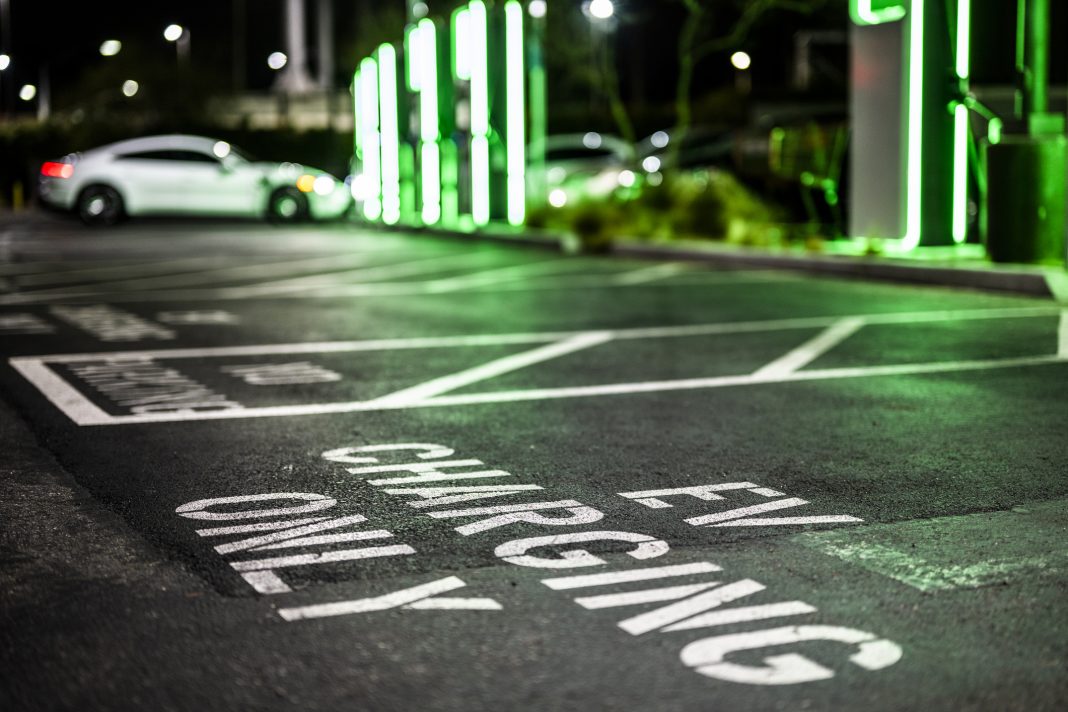£380.8m has been promised for the Local Electric Vehicle Infrastructure Fund or LEVI fund in an effort to push transport towards net zero through the expansion of EV charging infrastructure
On 30 March 2023, the Department for Transport (DfT) announced they were launching a further £380.8m for the LEVI fund.
This fund supports local authorities in England to work with the charge point industry in the roll out of electric vehicle infrastructure – a major player in reducing our adverse effects on climate change.
The funding has been broken down into two parts:
-
Capital Fund
A £343m Capital Fund has been allocated to contribute towards the cost of installing electric vehicle charging points. This includes, charging hardware, electrical connections and civil engineering costs.
The energy saving trust website states that the capital fund aims to:
- Deliver a step-change in the deployment of local, primarily low power, on-street charging infrastructure across England.
- Accelerate the commercialisation of, and investment in, the local charging infrastructure sector.
A breakdown for your local authority region capital funding allocation can be found here.
2. Capability Fund
A further £37.8m Capability Fund has been made available to help support the resources needed to build an electric vehicle charging strategy – a programme to deliver it and finally maintain it.
With the ambition to achieve a target of 300,000 public electric vehicle charge points by 2030, the funding is welcomed news to support local authorities as they look to roll out electric vehicle charging infrastructure.
VolkerSmart Technologies has been supporting the rollout of electric vehicle charge points (EVCPs) since 2017. Since then, VolkerSmart Technologies has established itself as a market leader and have installed over 5,000 EVCPs.
As a contractor, rather than a charge point operator (CPO), they have a unique view of the market, whereby working with various partners and local authorities to install a range of EVCPs. This provides clients with an independent view on what charging point is right for your local authority, location and budget.
On your journey to rolling out electric vehicle charging, there are some challenges to consider along the way. We have picked out the ones we give our clients the most advice on:
Charging infrastructure and financial models
In principle there are three financial models to consider. Deciding which financial model is right for you depends on your initial budget, the amount of ownership you would like over the charging infrastructure and revenue you would like to generate.
- Publicly owned – The local authority has full ownership of the charging hardware and electrical assets. This gives the authority the highest potential revenue share, which is generated from the usage of the EVCPs. However, this is the costliest to deliver.
- Concession – part public and part privately funded. Typically, the local authority will contribute towards the capital costs (which can be the LEVI fund), with a CPO providing the remainder. In this instance, any revenue from vehicle charging will be split, as agreed, between the two parties.
- Fully funded – fully funded by the CPO, including the hardware and installation costs. The CPO would take the main share of any revenue from vehicle charging and the assets would remain the CPO’s property.
On-street and off-street locations for EV charging
As part of the local authority’s electric vehicle strategy, we typically see the project separated into two main categories: on-street and off-street. In general, most EV charging is done at home, overnight, so an understanding of how many of your residents rely upon on-street parking is essential.
Residents who live in more rural areas will also need consideration. This is because the demand for electric vehicle charging in rural areas is typically lower, making it less appealing for private investment.
Charging point product selection and LEVI fund requirements
There are four main charging speeds: slow, fast, rapid and ultra-rapid. LEVI funding is primarily intended to support slower-speed charge points.
Slower speed charge points have an output between 3kW-6kW and are best suited for home charging.
There are various options available to best support on-street home charging. This can include lamp column chargers, wall or pedal stool mounted and unique flat and flush solutions.
Fast charger output ranges between 7kW-22kW and are normally labelled as ‘destination chargers.’ These are typically installed for off-street parking and can be found in car parks, retail estates and supermarkets.
Rapid chargers and beyond have an output of 43kW. The majority of rapid chargers would be found at service stations/public rest stops, and for everyday car users, you will typically find an output between 43kW – 150kW.
Rapid chargers are still eligible for LEVI funding, but it is expected that LEVI funding supports slower home-based charging.
The need for continued maintenance for an EV charging network
It is essential that the EV charging network is reliable. The user experience is an important part of the journey, and maintenance of your EVCPs forms part of that journey. A Service Level Agreement (SLA) should be considered to keep charger downtime to a minimum.
SLA’s can be tailored to meet your needs and range from planned services to reactive maintenance. Using the charge point software, many faults can be diagnosed remotely, so disruption can be kept to a minimum, with an engineer only required to attend site to carry out the repairs.
Who are VolkerSmart Technologies?
VolkerSmart Technologies is part of leading integrated highway services provider, VolkerHighways. We’ve been delivering a range of highway infrastructure solutions, in live and complex locations, for over 50 years.
We’re part of VolkerWessels UK – a group with a turnover in excess of £1bn, which brings together five business units to collaborate across multidisciplinary projects across the UK. This means we have the financial stability and strength to give our clients complete confidence in an emerging industry.
VolkerSmart Technologies work with premium manufacturers and specialists to bring our clients the latest technology, best value for money and optimal, high-quality installations. Whether you require a full turnkey solution or bespoke service, we can support you on your EV infrastructure journey.
This includes:
- Project management
- Providing detailed electrical design
- Supplying site surveys securing you the best solution to meet your needs
- The installation of hardware and equipment
- Managing the interface with local authorities and other impacted parties, e.g. power network operators
- The installation of civils works, including reinstatement, surfacing, bay markings and traffic management, when required
- Being a certified independent connections provider – connecting directly onto the local power network, improving efficiencies and securing on-time delivery
- Providing a full aftercare package including servicing, planned and reactive maintenance of installations.
For more information, please email business.development@volkerhighways.co.uk
More About Stakeholder
-
VolkerSmart Technologies – electric vehicle charge point installer and maintainer
VolkerSmart Technologies is a market-leading electric vehicle charge point (EVCP) installer and maintainer.
Editor's Recommended Articles
-
Must Read >> Making a step towards greener transportation
-
Must Read >> The quickest wins for decarbonising the NHS
















